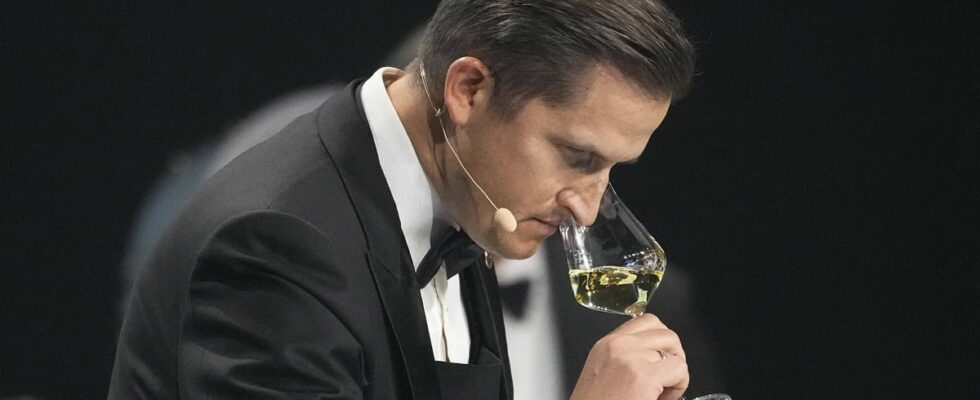In vino veritas. This Sunday, the Latvian Raimonds Tomsons won the international competition for the best sommelier in the world in Paris, a symbol of the varied profiles in this profession which fascinates well beyond the wine regions. Another representative from northern Europe, Denmark’s Nina Jensen became vice-champion for the second consecutive edition of this triennial competition. Chinese Reeze Choi finished third.
“I can’t believe it”, “I am extremely happy”, declared Raimonds Tomsons on the stage of the final, which took place in public in the covered stadium of La Défense Arena, at the gates of Paris. To the presenter who asked him, in a joking tone, if there were vineyards in his country whose name he confused with Lithuania, the neighboring Baltic country, Raimonds Tomsons replied: “Let’s enjoy Latvian beers instead” .
More “free” minds
Less artistic and relaxed, but more precise, he beat Nina Jensen who impressed spectators with her confidence, in the online comments on the competition, broadcast live. Asked during the semi-final on Friday, Raimonds Tomsons said that not growing up in the culture of wine was “an advantage”.
“We don’t have a history and our minds are freer,” he said. “In Latin America or in ‘classic’ countries like Spain and Portugal, they find it more difficult to open up to wines from around the world, because they are very proud of their wines,” he said. added.
As for the French candidate Pascaline Lepeltier, she came fourth and was not qualified for the final. “In France, we are spoiled children. The new countries that are discovering wine have such a thirst for learning, for sharing, they have this incredible enthusiasm and they go very quickly,” she told AFP after the semi-final.
Impossible mission
The final events were all designed around wine: identifying them blindly, associating a stone with a wine, wines with dishes, finding errors in a price list or guessing the bottle from a series pictures. But to get there, we had to go through more “hipster” workshops in the semi-finals: identify five non-alcoholic drinks from around the world and imagine a vegan menu to accompany them.
The correct answers were not revealed until after the final and everyone, including jurors, agreed that it was an almost impossible mission. “I’m very happy not to have had to do that,” said Swede Andreas Larsson, best sommelier in the world in 2007 and member of the jury for this edition.
Evolutions of manners
In another workshop in the semi-final, the candidates had to compose old cocktails, Aviation and Sazerac, with deliberately missing ingredients (such as crème de violette) for which they had to find alternatives. For Philippe Faure-Brac, president of the Union de la sommellerie française and winner of the competition for the best sommelier in the world in 1992, having skills “in all drinks” in the world is now essential.
Compared to the first edition of the competition in 1969, consumers have “much more information than before” and the profiles of sommeliers “who can travel and train in different places” are diversifying, he told AFP before the contest. As for the “nolo”, these alcohol-free or low-alcohol drinks, very popular in Anglo-Saxon and Scandinavian countries and which are gaining ground in France, “we cannot fight against the evolution of things and give up along the way people who want to enjoy differently,” he concluded.

